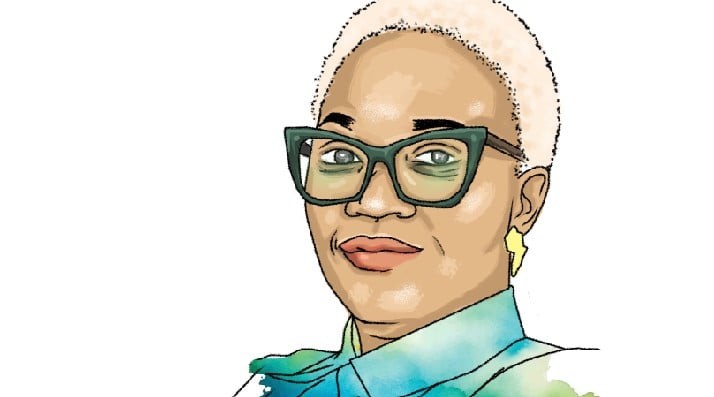
Brenda Wangari, head of portfolio success at Madica
Entrepreneurship and innovation are major drivers of any economy’s growth. Yet while Uganda is the most entrepreneurial country, at least per the World Bank, this does not equate to the amount of external investment capital flowing into the country, especially in the technology sector.
Access to capital is a recurrent problem across business types according to a report by the Collaborative for Frontier Finance, which breaks down businesses into four segments.
They include: livelihood-sustaining enterprises, dynamic enterprises, niche ventures, and high-growth ventures. All these significantly contribute to Uganda’s economy, with growing interests in high-growth ventures. These are mainly tech businesses that have high growth and scalability rates.
Brenda Wangari, the head of portfolio success at Madica, a structured investment programme for pre-seed stage technology companies in Africa, says most of these businesses require significant capital investment to drive innovation.
Wangari tells me that businesses range from roadside shops then slightly bigger businesses that can employ 15 to 20 people, with several branches, and the next would employ more workers ranging from casual labourers, full-time and part-time employees. Another level would be high-growth enterprises that can create many more jobs simultaneously.
In Uganda’s case, there are several livelihood sustainability, dynamic and niche ventures and businesses, and less high-growth ventures.
“While Uganda has several brilliant innovators, publicity for these people and their businesses is lacking. I have interfaced with many of them and we did a roadshow bringing together these active tech founders in partnership with the Founders Lounge and Starthub last year,” she says.
She adds: “When someone thinks about East Africa, Kenya might automatically come to mind. Previously, Ugandans never showed up at tech events, but this is changing. I have encountered several at tech events in Nairobi. Nonetheless, much more needs to be done to share more on Uganda, its innovations and innovators with the world so more people are drawn to it.”
Gendered challenges
Women are also underfunded, especially in Uganda where women make up 67 percent of the informal workforce per the International Labour Organisation (ILO). Education around tech investment is, in Wangari’s book, vital insofar as determining where capital goes.
She draws from her time with Village Capital where most hubs they worked with did not have investment technical talent such as analysts.
“Therefore, the bulk of the capital that will come in will not be tech funding as venture capital funders are more interested in high-growth ventures,” she says.
The other challenge is that tech is male-dominated, and many tech interventions are designed with men in mind. For most women, the first entrance into tech is at the training level, say, at university.
“If fewer girls are getting in at this point, it will even be more difficult further down the line. That is the first barrier,” she opines, adding, “If women are not on the table where these decisions are being made, how do you expect more women-run businesses to get funding?”
There is an opportunity to do more for women to get into these spaces where funding is more available. That is because traditionally, women have caregiver roles, therefore the interventions designed to enable this cannot be the same as those for men.
“Without intentionality, all one will have is a programme that is branded to help women get into tech spaces but with a high drop-off rate. One hub that has cracked this is Mkazipreneur because they have appreciated women’s responsibilities hence designing programmes that are aligned with their needs,” Wangari reasons.
That said; the tide is starting to change as more Ugandans have set their sights on venture capital funds. Support from the diaspora also continues to be pivotal.
“There is a fund run by two Ugandans in North America that I am speaking to and they want to invest on the continent. Oftentimes, such people will invest at home before going elsewhere because they understand home better. It is such news that excites me with the innovation ecosystem,” she discloses.
Other bottlenecks
Looking at the African plain, Wangari says entrepreneurs are over-mentored and underfunded. She believes it would be better to fund businesses to build innovative businesses that experiment to understand what works and what does not.
Regarding gender representation, there has been a challenge for the locally educated as they do not have access to networks that manage capital, whether it is dilutive or not. The question then is: How do they break into those spaces?
“I do not have to look far to see people that look like me; people who are disrupting the tech space. Many people running startups today are also locals and women,” Wangari, who is Kenyan, says.
Moreover, Kenya is intentionally creating spaces where women meet, share advice and network. Wangari says that it forms a foundation for women to build from when they want to do business in future. She cites Barbara Mutabazi as an example of a Ugandan woman who has broken the glass ceiling by running communities such as the Women in Technology Uganda and Hive Colab.
“She has broken barriers to work with the partners such as IKEA Foundation, and Agidius Foundation. These communities are crucial in supporting women with advice and funding while supporting them in the business journeys,” Wangari further notes.
Her journey
Ugandan at heart, Wangari studied sociology and communication. The heart that beats for Uganda was captured by tech and entrepreneurship in unassuming ways. She first came to Uganda, while at the University of Nairobi under AIESEC—a student organisation to facilitate the SCORE conference. Wangari vividly remembers eating rolex and later working for AIESEC Nigeria. She then circled back to Kenya, working for a Nigerian tech startup that was expanding home. A stint with Tech Point, a tech publication covering stories in Africa, then followed.
“I then moved to Clean Energy Space before transitioning to the entrepreneur support side. It was here that the tech boat rocked to incorporate entrepreneurship. I was curious about how people make decisions on which entrepreneurs to fund,” she reveals.
During her five-year stay at Village Capital, Wangari worked on several projects geared towards ecosystem building. The first was with 18 hubs across Africa. Innovation Village from Uganda was one of them. The hubs moved from Nairobi to Lagos and Cape Town participating in various workshops.
“A lot of the work afterwards in Uganda continued in ecosystem building. I also worked on a hub sustainability programme to support hub founders in thinking through their business models as most hubs are grant-funded yet grants sometimes dry out,” she says, adding that 13 organisations such as Hive Colab, StartHub, and Finding XY were impacted.
Among these was also Mkazipreneur which was going through a transition phase. Wangari says it was interesting helping them think through the type of programmes they were offering.
“Many realised that their targets were different, which paved the way for collaboration,” she says of the training.
The training also revealed that for a grant giver whose smallest cheque is $200,000, most hubs could not absorb it because even the annual budget spend was lower than that, say $50,000. Therefore, that grant type was risky as it would primarily cover four times of the hubs annual operating budget.
Successful hubs from the programme have been able to unlock larger amounts of grant capital funding.
Next was the O-Farms project by the IKEA Foundation alongside Village Capital and Bopnic, initially scoped for Ethiopia and Kenya. However, they hit a snag with implementation in Ethiopia hence quickly pivoting to another location. Uganda was the nearest option and they worked with Hive Collab while Kenya had E4Impact Entrepreneurship Centre. Wangari says this was the first programme fully geared towards entrepreneurs in the circular agriculture space and they trained 40 small and medium enterprises (SMEs).
“Food waste and spoilage is a major issue in Africa, with 25-44 percent mangoes lost across the value chain in Kenya, according to NextBillion.net. Therefore, we worked to locate businesses, their input, and their products to help them turn food waste and by-products into affordable and nutritious foods and organic fertilisers,” she says.
Thereafter, she transitioned to Madica whose goal is to find typically overlooked entrepreneurs. Wangari says Uganda has many of these because scanning the funding going into tech, Uganda is not among the top 10 recipients.
Her efforts
Wangari does a lot formally and informally to ensure that more women join the tech spaces. Formally, at Madica, they are closing their fifth investment. Four of these are female co-founded and the “women are deeply passionate about their businesses with a longevity strategy while tackling solutions that have disturbed generations.”
Madica’s goal is for their first fund to invest in 30 businesses in three years, more so those that are disrupting industries and that are contributing to the economies they are part of.
Wangari is also part of communities such as the Women Who Build Africa—a women in tech community where they share opportunities regarding funding, jobs and mentorship. She is also passionate about ensuring women are financially stable hence continually advising people who run women empowerment programmes on how they can make them sustainable and that empowerment is also financial.









